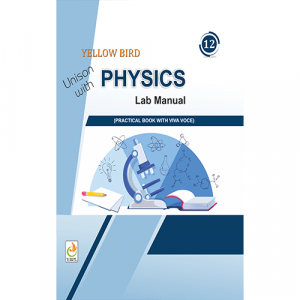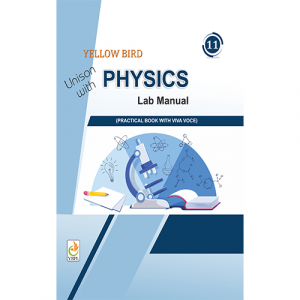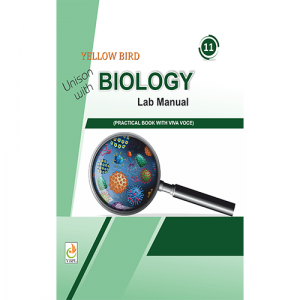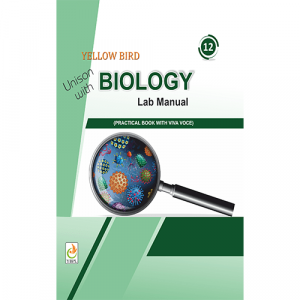How Lab Manual Books for CBSE Students Can Enhance Your Lab Practicals?
How Lab Manual Books for CBSE Students Can Enhance Your Lab Practicals?
Do you often find yourself struggling with lab practicals despite having a thorough understanding of the theoretical concepts? Don't worry; you're not alone. Lab experiments are an integral part of CBSE's science curriculum, and they require hands-on experience to comprehend fully. That's where lab manual books come in handy. Not only do they help you understand the experiment better, but they also provide crucial information that can make your practicals more efficient and effective. In this blog post, we'll explore how lab manual books for CBSE students can enhance your lab practicals and improve your overall performance in science subjects. So let's dive right in!
Introduction to Lab Manual Books
Most of the students who are pursuing their studies in the field of science have to deal with a lot of laboratory work. In order to get a clear understanding of all the concepts, it is important for the students to keep a record of all the experiments that they conduct in the laboratory. This is where lab manual books come into play.
A lab manual book is basically a record book in which students can maintain a log of all the experiments conducted on them. These books usually have space for taking down notes and recording results. Lab manual books are extremely helpful for students as they can use them as a reference book when revising for their exams.
There are many benefits of using lab manual books for CBSE students. Some of these benefits are mentioned below:
1. Helps in better understanding of concepts: By maintaining a log of all the experiments conducted in the laboratory, students can get a better understanding of all the concepts. This is because they can go through their notes and understand what exactly they did during an experiment.
2. Enhances problem-solving skills: By recording results and analyzing them, students can develop their problem-solving skills. This is because they will be able to identify errors and figure out ways to improve their experiments.
3. Encourages scientific thinking: Maintaining a lab manual book encourages scientific thinking among students as they will be constantly observing and recording data. This will help them develop critical thinking skills which are
How Lab Manuals Can Help CBSE Students
If you are a CBSE student and want to enhance your practical knowledge, then using a lab manual is the best way to go about it. A good quality lab manual can help you understand the concepts better and also provide you with detailed instructions on how to carry out experiments.
Some of the benefits of using a lab manual are:
1. Helps you understand the concepts clearly: When you read the theory from a textbook, it is easy to forget or mix up the different concepts. However, when you refer to a lab manual, it becomes easier to understand and remember the concepts as you get to apply them practically.
2. Provides step-by-step instructions: It is not always easy to remember all the steps required to carry out an experiment. A lab manual book provides detailed instructions that make it easy for you to follow and avoid any mistakes.
3. Gives you a chance to practice: By doing experiments from a lab manual, you get ample opportunity to practice and hone your skills. This is especially beneficial for complex experiments that require delicate handling.
4. Saves time: Once you are familiar with an experiment from doing it in the laboratory, you can save time by referring to the manual at home and quickly revise the steps without having to set up the entire experiment again.
5. Makes learning fun: Experiments are always more enjoyable when done with friends or in groups. A lab manual makes learning fun as it allows you
Benefits of Using a Lab Manual Book
A lab manual book is a great way to enhance your CBSE students' lab practicals. Here are some benefits of using a lab manual book:
1. It provides step-by-step instructions on how to carry out each experiment, which is especially useful for students who are new to the laboratory environment.
2. It serves as a valuable reference point for students when they are revising for their end-of-year exams.
3. It helps students to develop good laboratory technique and safety awareness from an early stage in their scientific studies.
4. It encourages independent learning, as students can work through the experiments at their own pace outside of class time.
5. The use of a lab manual book can promote greater interaction between teachers and students during practical classes, as it allows teachers to focus on answering any questions that students may have about the experiment rather than having to provide step-by-step instructions themselves.
Tips on Making the Most of the Lab Practicals
When it comes to making the most of your lab practicals, your lab manual book can be a great resource. Here are some tips on how to get the most out of your CBSE Lab Manual books:
1. Make sure you read the background information and theory section before starting your experiment. This will give you a good understanding of what you are trying to achieve during the practical.
2. Follow the step-by-step instructions carefully so that you don't make any mistakes during the experiment.
3. Take note of all the observations and results that you obtain during the experiment. This will be useful for later reference and for discussing with your classmates or teacher.
4. If you have any questions about the experiment, don't hesitate to ask your teacher or classmates for help.
5. Finally, reflect on what you have learned from the experiment and try to apply it to other situations in the future.
Common Mistakes to Avoid During the Practicals
1. Avoid rushing through the practicals. Make sure to take your time and complete each step thoroughly.
2. Pay attention to detail. Don’t overlook any important details in the instructions or in the data you collect.
3. Be organized. Keep track of all your materials and data so you can refer back to them later if needed.
4. Check your work. Before you move on to the next step, double-check that your previous work is accurate and error-free.
Checklist for Practical Exams
When you are preparing for your practical exams, it is important to have a checklist of all the items you need to bring with you. This will ensure that you are prepared for the exam and have everything you need to complete the tasks.
The following is a checklist of items you should bring with you to your practical exam:
-Scientific calculator
-Notebook and pen
-Goggles
-Safety gloves
-Apron
-Beakers
-Flasks
-Pipettes
-Funnels
-Stirring rods
-Thermometers
Conclusion
Lab manual books for CBSE students are a great way to enhance your lab practicals and improve your understanding of the different scientific principles by using Yellow Bird Lab Manual books. With these, you can easily design experiments that meet all educational standards as well as have a better knowledge about the subject matter. All in all, they can prove to be very useful in helping you understand and practice concepts related to science more effectively. So go ahead and get yourself a good quality lab manual book today!









Comments
Post a Comment